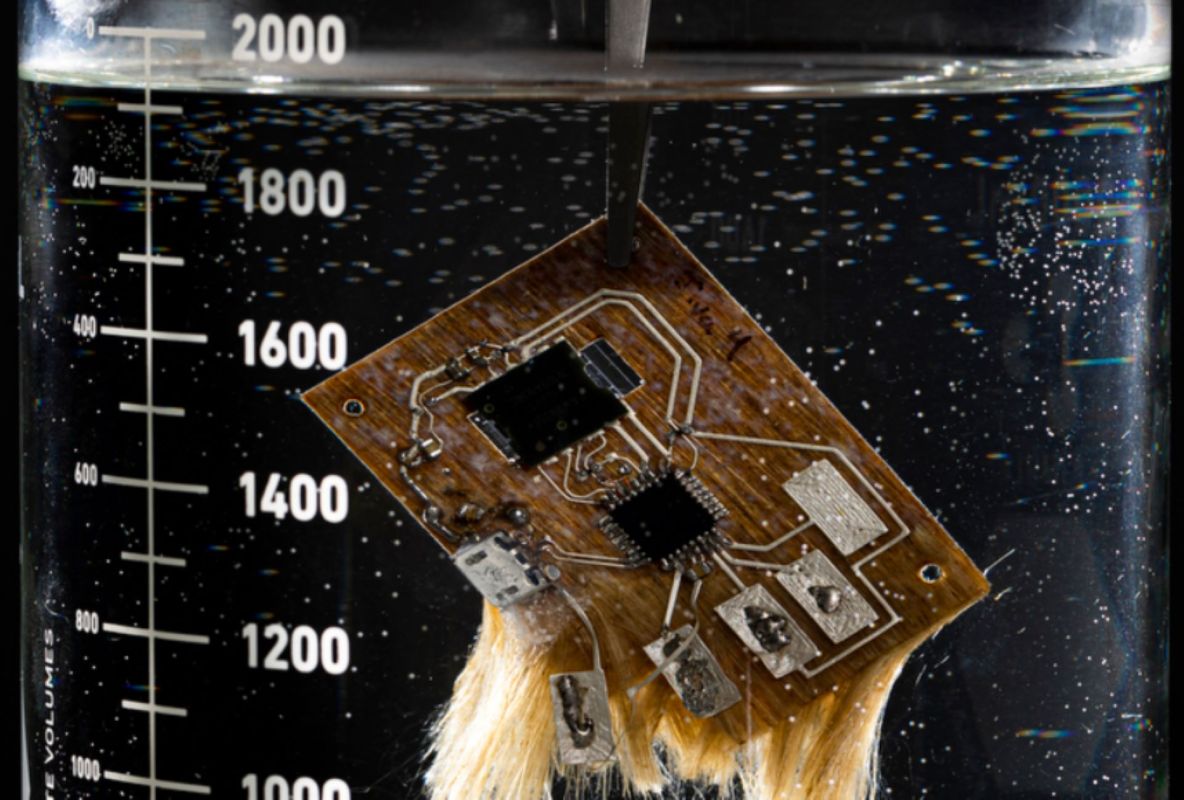A key component of the electronics industry is in hot water — and it could be great news for the planet.
London-based Jiva Materials has developed a printed circuit board called Soluboard that can be dissolved in hot water in under six minutes, allowing for the metal electronic parts to be easily recycled afterward. That has Jiva heralding it as a game-changer for electronics pollution, calling it "the world's first fully recyclable PCB substrate."
About 194 billion square feet of printed circuit boards, or PCBs, are made around the world every year, according to Jiva. The boards include costly metals (including nickel, lead, aluminum, and others) needed to make the electronics work. The boards themselves are made from an epoxy resin and fiberglass, which need to be shredded and burned to recover the metal parts, per Jiva.
Since electronics are likely going to become an even more significant part of our lives, the amount of waste could become staggering. Data collector Statista forecasted the volume of e-junk to grow to more than 82 million tons a year by 2030.
Jiva bills Soluboard, made from non-toxic, natural, and biodegradable materials (including jute), as a solution. A polymer and a flame-retardant are also applied, though the materials are more planet-friendly than the kind used in typical PCBs, Jiva reported. It's being designed to stand up to high humidity as well.
"It is time for us to take responsibility for our products and the impacts that they are having on the planet," Jiva CEO Dr. Jonathan Swanston said in a press release.
The biggest benefit might be a better recycling method.
The company reported that about 55 million tons of electronic waste is already created on Earth annually. A Jiva video clip shows mountains of discarded electronics being processed through giant shredders. Other scenes show burning heaps of waste spewing toxic smoke. The junk includes old TVs, stereos, and other products that contribute to our daily lives.
The company claims that "large amounts" of electronic waste are shipped to developing countries. Jiva states that 17,500 shipping containers are dispatched each year from Europe alone.
The video clip shows Jiva's answer — a Soluboard submerged in hot water. It becomes soft and begins to dissolve, allowing for the costly metal parts to be removed. Jiva experts said the board can be composted, the water disposed of through "standard waste water systems," and the electronic parts recycled.
Ideally, company officials would like Soluboards to be part of a circular system, maximizing recycling. They are working to bring industry juggernaut Microsoft on board.
Jiva's newsroom already includes some big boons, including successful investment rounds.
Global tech company Infineon has already bought into the concept, according to a company post on X, formerly known as Twitter.
"We are adopting Soluboard … based on natural fibers," the company tweeted, along with a video clip of a PCB being dissolved in boiling water.
Join our free newsletter for weekly updates on the coolest innovations improving our lives and saving our planet.









